Law Laboratory
As the implementing and supporting element of education, teaching, research, and community service especially in developing professionalism in the field of law, the existence of Law Laboratory is a conditiosine quanon. The laboratory was officially established and it has organized activities since 1993. Initially, the Law Laboratory was structurally and organizationally not recognized yet although it had been at the Faculty of Law UMM. It brought a logical consequence where the activities were limited on organizing mood court for students.
Considering the importance of the laboratory, the RI government issued regulation through Mendikbud's Decree No. 17/DO/1994 which has been updated with Mendikbud's Decree No. 0325/U/1994. The contents did not only remove majors in Law Faculty throughout Indonesia, but also legalize Law Laboratory. The laboratory was metamorphosed into heart in the Faculty of Law which would pump theory flow (das solen) to be implemented in the real life (das sain). Thus, law would not be understood as a written rigid norms, but it would live and develop along together with the life development dynamics.
With the Mendikbud's Decree, the content of the local curriculum of the Faculty of Law are dominated with practical contents. The Mendikbud's Decree even explicitly determined practical contents nationally with 6 credits which are known better as Kelompok Mata Kuliah Kemahiran Hukum (MKKH). In addition, the functions of the Law Laboratory are as organizer as well as formulator system model and the implementation mechanism of MKKH.
In order to undertake the duties, UMM Law Laboratory organizes the following activity programs:
A. Division of Education and Legal Practice
1). It is responsible for organizing subbjects with practicums as well as organizing student's internship.
2). Organizing MKKH such as:
a). Training on Event and Advocacy
b). Training on Making Deed and Business Skill
c). Training on Land and Tax
The models of training can be seen through teh curriculum as in the chapter III ofthis guidance book. The training models can also shift and develop at any time along together with the legal practices in the society.
3). Organizing practical legal trainings outside the regular subjects such as:
a). MAPS Training (Alternative Method of Dispute Settlement) of various fields, for instance defense, labor, environment, etc.
b). Karya Latihan Bantuan Hukum ( KALABAHU )
c). Education and Training of Advocacy, etc.
The division of Law Laboratory which particularly handles teaching programs is Pusat Pendidikan dan Pelatihan (Pusdiklat).
B. Division of Documentation and Legal Research
1). Documenting legislation, judge's verdicts, results on legal researches, and various requiring information on law.
2). Documenting results of legal researches
3). Inventorying and collecting positive legal sources in Indonesia
The division of Law Laboratory which particularly handles documentation and research is Pusat Dokumentasi Hukum (PDH).
C. Division of Consultation and Legal Service
1). Organizing and coordinating legal counseling for public to Law Faculty lecturers of UMM both directly in the public and through other medias.
2). Forming target village which has legal awareness in Malang and its surrounding.
3). Providing consultation and legal services both litigation (through court) and non-litigation (consultation service and problem solving in peace, outside the court) for UMM academic community and also the publics.
The division of Law Laboratory which particularly handles program in the field of consultation and legal service is Lab Konsultasi dan Pelayanan hukum (LKPH).
In general, the Law Laboratory is functioned to support teaching-learning and other academic activities as well as a means for student coaching in the law parcticum materials.
Related Information:
- Introduction
- A BRIEF HISTORY; THE DEVELOPMENT OF UNIVERSITY OF MUHAMMADIYAH MALANG
- THE VisiON AND MiSsiON OF UniversitY
- THE BASIS AND PURPOSES
- GRADUATES COMPETENCY
- ACADEMIC REGULATIONS
- GENERAL PROVISIONS
- EDUCATIONAL PROGRAMS AND ACADEMIC DEGREE TITLE
- ACADEMIC ADMINISTRATION
- Curricular activities
- EVALUATION ON THE STUDY ACHIEVEMENT
- TRANSFER PROGRAM
- MOVING AND TRANSFER LEVEL
- DOUBLE DEGREE PROGRAM
- EDUCATION PARTNERSHIP PROGRAM
- ACADEMIC FRAUD
- CLOSING
- SOME SUPPORTING FACILITIES
- LECTURE BUILDINGS
- Laboratory of Arabic Language and Islamic Studies
- Islamic Education Laboratory
- Syariah and Islamic Law Laboratory
- Biology Laboratory
- Chemical Laboratory
- Physics Laboratory
- Multimedia Language Laboratory
- Social Welfare Laboratory
- Communication Studies Laboratories
- Governmental Science Laboratory
- Sociology Laboratory
- Laboratory of International Relations Department
- Law Laboratory
- Engineering Faculty Laboratory
- Mechanical Engineering Laboratory
- Civil Engineering Laboratory
- Electrical Engineering Laboratory
- Industrial Engineering Laboratory
- Informatics Engineering Laboratory
- Laboratory and Study Center of Economic Faculty
- Agriculture Laboratory
- Psychology Laboratory
- Agriculture-Fisheries Laboratory
- Nursing Laboratory
- Pharmacy Laboratory
- Language Center
- Community Service Institute
- Research Institute
- Information and Communication Institute
- A Center of Study for Woman and Society (PSWK)
- Territorial Study Center (PSK)
- Biotechnology Development Center
- Center for Islamic Studies and Philosophy (PSIF)
- MOSQUE
- Polyclinic and Health Facilities
- Sports Facilities
- Student and Staff Cooperatives

.jpeg)